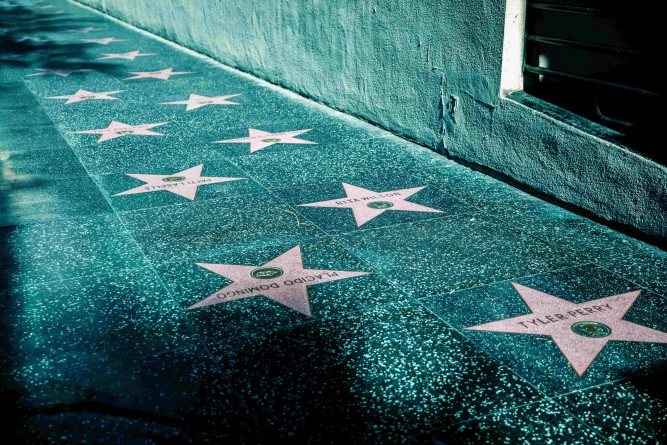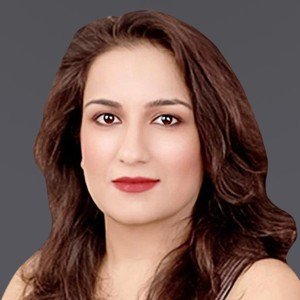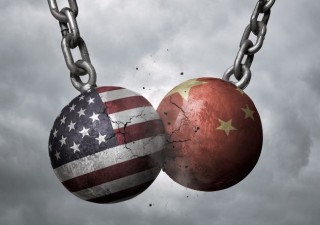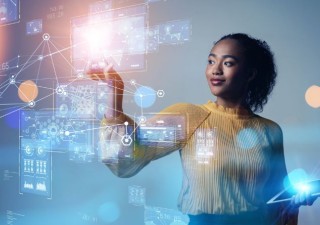From fame to frame: How can personality rights be secured against AI misuse?
30 October 2024

In the age of artificial intelligence, where digital simulations can replicate human likenesses with startling accuracy, protecting personality rights has become very crucial. As AI-powered technologies enable the cloning of faces, voices, and unique characteristics with simple processes, celebrities are vulnerable to unauthorized use and misrepresentation of their identity. Uncertainties about adequate protections may lead people to face potential exploitation and loss of control over their personal attributes, which can impact their privacy, reputation, and economic interests. Strengthening personality rights is essential to safeguard individuals against unauthorized AI recreations and to ensure that personal identity remains under the individual’s rightful control in this digital era.
The concept of personality or celebrity is often context-specific, resonating uniquely within certain groups or cultural circles. Statutes worldwide try to protect celebrity rights by safeguarding elements intrinsically tied to their persona, such as names, likenesses, and distinctive traits. One of the leading legal frameworks regulating using a person’s identity in AI-generated content is the right to publicity. While some jurisdictions have laws protecting the right of publicity, most rely on common law. Even though the right of publicity offers some protection against unauthorized AI-generated content, the definition of a person's “persona” in this context is still unclear. Courts may also need to look into the question of “transformative use” with a different lens when AI can accurately replicate an individual's identity.
With the advent of powerful generative AI tools, utilization of identities of celebrities may generally happen in four ways:
-
Images, videos and sound recordings of real individuals may be used as training data.
-
People’s names and other identifiable details can serve as prompts.
-
Generative AI outputs may include, replicate or evoke individuals’ names, likenesses, voices or performances; and
-
People’s identities or performances may be leveraged to promote or market AI platforms.
Considering defences such as newsworthiness and public interest along with the interpretation of text and data mining exemptions applicable for AI training may create a hurdle for celebrities in effectively controlling the unauthorized use of their personality rights in the AI development realm. In addition, defining “persona” and “transformative use” in AI, where technology can flawlessly mimic an individual’s identity, may blur the lines between permissible inspiration and infringing output replication.
Another hurdle is balancing personality rights with copyright law, as AI often utilizes copyrighted works. In contrast, copyright law allows for derivative works, potentially leading to conflicts in the grey area. Further, considering moral rights associated with a celebrity will add complexity to such questions. In addition, concepts of free speech exceptions when the question on AI and the rights of celebrities is considered is yet to be tested in detail before a court of law.
The potential of AI to disrupt the movie industry became evident during the 2023 SAG-AFTRA strike. This highlighted severe concerns around the unauthorized use of personality attributes, which poses ethical and commercial challenges. Though recent deals between advertisers and celebrities offer a temporary solution, such contractual arrangements may only sometimes effectively address the broader underlying issues. This highlights the need for more robust, long-term frameworks to govern AI’s role in creative industries.
Even though jurisprudence on this subject is nascent, Indian courts have considered such questions and provided protection against the misappropriation of personality rights with the help of AI. In Vishnu Manchu v Arebumdum & Ors., the Delhi High Court took serious note of the fact that AI is enabling illegal and unauthorized users to use, produce or imitate a celebrity’s persona. The court stated that it could not turn a blind eye to such misuse and restricted the same.
In Arijit Singh v. Codible Ventures LLP and Ors., the plaintiff, a famous Indian singer, sued defendants who were using AI to clone his voice and create content that mimicked his singing style. The Bombay High Court determined that offering AI voice conversion tools to the public without the plaintiff's consent violated his personality rights. The court observed that these tools enabled the unauthorized use and manipulation of the singer’s voice, allowing others to profit from his popularity and potentially harm his career. The court also noted the risk of these tools being misused for illegal purposes and issued an injunction preventing the defendants from infringing on the plaintiff’s rights.
In Jaikishan Kakubhai Saraf v. Peppy Store, the Delhi High Court issued an interim injunction against defendants who used AI to create a chatbot that imitated a well-known Bollywood actor. The court found the AI chatbot unlawful because it was designed to mimic the actor's distinctive personality traits. In Anil Kapoor v. Simply Life India & Ors., another renowned Bollywood actor sued defendants who utilized AI to create deepfakes, including pornographic content. Some defendants used a generative AI tool to depict the plaintiff cartoonishly, while others used his image and persona to sell merchandise. The Delhi High Court recognized that creating deepfakes without authorization violated the plaintiff's personality rights, causing reputational damage and loss of endorsement opportunities. The court acknowledged the importance of free speech but highlighted that it should not infringe upon an individual's rights, including livelihood, privacy, and dignity.
Further, Amitabh Bachchan v. Rajat Nagi, the famous actor filed a lawsuit against individuals using his name, image, and voice in a lottery scam. The Delhi High Court issued a comprehensive order protecting the plaintiff’s personality rights, effectively prohibiting any use of his traits in AI systems, including deepfakes, without his permission. Such an order has assisted the plaintiff in acting at a further point against the circulation of his deepfakes.
Similarly, Chinese courts have also found that using a person’s voice in an AI text-to-speech application without authorization violates personality rights.
A multi-pronged approach is crucial to safeguarding personality rights in the age of AI. This includes implementing robust data privacy laws, establishing clear ethical guidelines for AI use, and enacting legislation that protects personality rights, including adequate control over commercial use. The legal framework surrounding AI technologies needs to evolve to keep pace with advancements and ensure AI’s responsible and ethical use while protecting individual rights.









